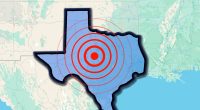Share this @internewscast.com
Colon cancer, also known as colorectal cancer, ranks as the third most prevalent cancer in the United States, with new cases comprising 7.6% in 2025. This form of cancer, developing in the large intestine, often begins with benign polyps that can quietly become cancerous, making early detection critical. While colonoscopy is the gold standard for detection, a common question arises: Is a CT scan capable of detecting colon cancer? Let’s break down the role CT scans play in its diagnosis.
What Is a CT Scan?
A CT, or Computed Tomography Scan, is an advanced imaging test utilizing X-rays combined with computer processing to generate detailed cross-sectional images of the body’s internal structures, such as bones, soft tissues, and blood vessels, from various angles.
- It allows the healthcare providers to see all these parts with more clarity compared to regular X-rays.
- This imaging test is basically non-invasive and quick and is used to detect tumors, infections, injuries, and any other abnormalities.
- It sometimes uses contrast dye that is injected or swallowed, which helps highlight the specific body part more clearly.
Can a CT Scan Detect Colon Cancer?
Yes, a study shows that this imaging test can detect large polyps and tumors in the colon, but with some limitations.
What It Can Detect:
The standard abdominal and pelvic CT scan can:
- detects tumors or masses in the colon and rectum.
- show whether the cancerous cells have spread to other body organs such as the lungs and liver.
- identify the abnormal thickening or blockages in the colon wall.
What It Might Miss:
- Small or flat polyps that are often precancerous
- Early-stage tumors
- Abnormalities in soft tissue or bone marrow
CT scans help stage colon cancer but are not considered reliable for early detection. That’s where colonoscopy shines.
CT Colonography (Virtual Colonoscopy): A More Targeted Scan
CT colonography, known as “virtual colonoscopy,” represents the most sophisticated form of a CT scan employed in detecting colon cancer. This technique delivers intricate images of the colon and rectum, contributing to:
- identify larger polyps in the colon lining effectively that can be precursors or the beginning symptom of colon cancer.
- detect masses in the colon and look for narrowing and thickening of the colon wall.
- see the entire colon, which aids in identifying any potential issues in the colon.
Advantages of CT Colonography Over Traditional Colonoscopy:
|
Feature |
CT Colonography |
Colonoscopy |
|
Invasiveness |
Non-invasive |
Invasive |
|
Sedation Required |
No |
Yes |
|
Polyp Removal |
No |
Yes |
|
Time Required |
~15–30 minutes |
~30–60 minutes |
|
Prep Required |
Yes |
Yes |
Limitation:
If polyps or any abnormalities are found on CT colonography, the doctors still use traditional colonoscopy to remove them or conduct a biopsy for them.
How Does a CT Scan Detect Colon Cancer?
This is how a CT scan can identify the presence of colon cancer:
-
Takes Cross-sectional Images
Take various X-ray pictures of the abdomen and pelvis from multiple angles to create a detailed cross-sectional view of these parts.
-
See Colon Wall & Surrounding Tissues
Aids in detecting the presence of masses, abnormal thickening, and any irregularities in the colon wall.
-
Detects Metastasis (spread of cancer)
Reveals whether the cancerous cells have spread to surrounding lymph nodes, lungs, liver, or any other organs.
This is how a CT scan works to find the stage of colon cancer, which helps determine the possible treatment.
Who Should Get a CT Scan?
A CT scan might be recommended:
- If symptoms suggest colon cancer has spread
- When a colonoscopy can’t be performed
- To monitor cancer progression or recurrence
- As part of treatment planning
CT Scan Procedure: What to Expect
Here’s a detailed breakdown of the procedure:
Before the Scan:
- Consultation: The doctors will discuss the CT scan and answer your concerns and queries.
- Medical History: They will ask about your medical history like any health issues, (especially kidney problems and diabetes), medications, and allergies.
- Preparation: You will be asked to avoid eating a few hours before the CT scan, particularly if contrast dye will be used. They will discuss the process and potential side effects of contrast dye. Also, you need to wear a gown and remove the metal objects before the scan.
During the Scan:
- Positioning: The healthcare provider will ask to lie down on the table that glides into a CT scanner, a huge, donut-shaped machine.
- Contrast Dye Injecting: In case the doctors use contrast dye, it is injected into the vein using an IV line to see the body areas.
- Scanning: The table will slowly move into the scanner, and the machine will take X-ray pictures, which are prepared to create cross-sectional images of the body parts.
- Technologist Communication: The technologist will instruct you to hold your breath or stay still through an intercom.
You will be taken out from a CT scanner and the IV line will be removed. This procedure takes around 10-20 minutes, but the duration can vary based on the type of scan and preparation.
After the Scan:
- Monitoring: If the technician has used a contrast dye, they will monitor you for a short time to check for an allergic reaction.
- Contrast Elimination: They will ask you to drink a lot of water to excrete the contrast dye through urine.
- Result Interpretation: The radiologist will analyze the CT images and provide the result to your doctor for further discussion.
How the Healthcare Providers Stage Colon Cancer?
This is how the doctors stage colon cancer, which helps determine the appropriate treatment:
|
Stage 0 |
Cancer is restricted to the inside of the colon lining. |
|
Stage 1: |
Cancer has spread to the inner part of the colon wall but not to the outer layers. |
|
Stage 2 |
Cancer has reached the colon wall but not to the nearby lymph nodes. |
|
Stage 3 |
Cancer has reached the surrounding lymph nodes. |
|
Stage 4 |
Cancer has spread to far off organs such as the lungs, liver, and other body parts. |
By finding the stage of cancer, the providers can recommend the treatment. The doctors suggest surgery to treat early-stage colon cancer. However, for the advanced stage, cancer treatment involves chemotherapy, radiation therapy, immunotherapy, and targeted therapy.
Other Diagnostic Tests for Colon Cancer
The doctors may order the following diagnostic tests to detect colon cancer:
- Colonoscopy: Helps see the entire colon visually and detect tumors, polyps, and abnormalities in the colon.
- Fecal Immunochemical Test (FIT): Checks hidden blood from tumors or polyps in the stool with the help of specific antibodies, indicating cancer or the need for further tests.
- Fecal Occult Blood Test (FOBT): Also, find out hidden blood from polyps or cancers in the stool using chemicals.
- Stool DNA Test: Examines stool for specific DNA changes and shedding of blood from precancerous or cancerous polyps if present in the colon.
- Flexible Sigmoidoscopy: Functions like a colonoscopy but detects cancers only in the lower part of the colon.
- Biopsy: Analyzed samples are examined under a microscope to determine whether abnormal tissue is cancerous.
- MRI Scan: Uses strong magnets and radio waves to show detailed pictures of the body’s soft tissues that help detect the stage and spread of cancer.
- PET Scan: Research shows that this test helps find the size and extent of the tumor outside the colon and rectum.
Summing Up
So, can a CT scan detect colon cancer? Yes, but mostly for identifying larger tumors and later-stage cancer. For early detection, especially of small or flat polyps, a colonoscopy is still the most effective tool.
If you experience symptoms such as persistent abdominal pain, blood in your stool, or unexplained weight loss, don’t delay. Consult a healthcare provider to get the right tests and a proper diagnosis.
FAQs
What can a CT scan show that a colonoscopy can’t?
A CT scan shows a broader view of organs, blood vessels, and nearby tissues, and abnormalities or issues in them that a colonoscopy can not directly se,e as it only focuses on the internal intestinal lining.
Can a CT scan miss a colon tumor?
Yes, it can, especially in the case of small tumors or those that are located in the ascending or rectosigmoid colon.
Is a CT scan as good as a colonoscopy?
Colonoscopy is typically considered more accurate for identifying and eliminating benign polyps that can develop into cancer. However, CT scans can’t detect tiny polyps and sometimes miss them.
How accurate is a CT scan for colon cancer?
CT scan accuracy has been above 95% for detecting larger tumors or colon cancers. But it is less accurate in finding small polyps.
















